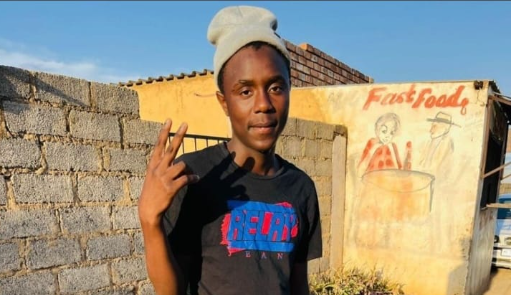Ramaphosa takes on ANC leadership role with alacrity: and clarity of intent
By: Thapelo Tselapedi, Rhodes University
ANC President Cyril Ramaphosa celebrates the party’s 106th anniversary with its deputy general secretary Jesse Duarte and president of South Africa Jacob Zuma. Reuters/Siphiwe Sibeko
Cyril Ramaphosa, the newly elected President of South Africa’s governing African National Congress, made his position clear when he delivered a much anticipated speech to mark the ANC’s 106th birthday over the weekend.
The statement has historically set the tone for government and informed the annual state of the nation address delivered by the president of the country at the opening of parliament in February. It also outlines the five-year mandate of the ANC’s decision making body, the National Executive Committee.
Ramaphosa’s speech had particular significance because even though he’s been elected as the new president of the ANC he won’t take over the reins of state until 2019 when President Jacob Zuma is due to step down after the next round of national elections. That’s if the normal pattern of succession unfolds. Rumours are rife that Zuma will be forced to step down before then.
Given the controversies swirling around Zuma and the legacy of his presidency, South Africans wanted to gauge, among other things, what the ANC considers to be the main challenges facing the country. And how it plans to face them.
Ramaphosa didn’t disappoint. It was clear – as well as remarkable – that the ANC’s members and its leaders have begun to unite behind a man they now affectionately call Silili – a derivative of the name Cyril. This was clear from the welcome he was given by ordinary people as he did a walkabout in the Eastern Cape town of East London as well as the reception he got from the tens of thousands of ANC supporters who came to hear him in the stadium. The hostility Zuma elicited from the crowd stood out in sharp contrast.
In addition, Ramaphosa is looking comfortable in his new role. It was evident from the speech he delivered that he feels confident enough to speak his mind on some of the big issues facing the country. Take this comment on state owned enterprises and corruption.
We need to act with urgency and purpose to restore state owned enterprises (SOEs) as drivers of economic growth and development. Several key SOEs are in financial distress, threatening not only their own operations, but the national fiscus. Many of these enterprises have experienced serious governance lapses and poor delivery of their mandate. These challenges have been exacerbated by state capture, through which billions of rands have been illegally diverted to individuals.
But there’s no gainsaying that Ramaphosa faces a tough year ahead as he navigates what is essentially a transitional period for the ANC, and for the country.
Ramaphosa’s trademark
Ramaphosa clearly meant to get off to a strong start. As he began his speech, he sounded like a disciplinarian busy extolling the virtues of starting on time. He pointed out that both the gala dinner the evening before and his speech ran to schedule. This was no mean feat – it’s not uncommon for ANC events to start hours later than scheduled.
There was another sign of the kind of leadership he intends to impose on the ANC: he regularly went off script to emphasise a rules-based approach to transforming the economy. So the dismantling of monopolies and oligopolies in the private sector will be done through the expanded mandate of the Competition Commission to create a more competitive economy.
Ramaphosa also appeared to be able to straddle difficult discussions with ease. He addressed hot topics, staying true to the policy decisions taken by the ANC conference.
Take the issue of the Reserve Bank and a decision by the ANC conference that its ownership structure should be changed from private to public ownership. Ramaphosa affirmed the independence of the bank but also called on government to ensure its full public ownership.
But it isn’t going to be an easy five years. These policy decisions, as well as others, will be difficult to implement. It will be interesting to see how Ramaphosa and his national executive committee navigate these waters.
Room for manoeuvre
The difficult work begins now.
Ramaphosa’s rules-based logic is likely to provide him with political mileage. In particular, it’s likely to earn him the confidence of a divided national executive committee.
The other thing that’s likely to give him room for manoeuvre is his emphasis on unity and party cohesion. This should help him counter perceptions that he’s cut from money rather than from the ANC’s culture and traditions given his cosy relationship with South Africa’s captains of industry as a result of his long stint in the private sector.
The time between now and the 2019 national elections is, in effect, a transitional period that needs to be characterised by strong backroom negotiations on a range of difficult issues. These include the removal of Zuma, as well as some of his problematic cabinet members, and the recapitalisation of state owned institutions.
There is a lot of confidence-building that the ANC leadership has to do. Zuma has weakened the ANC – as well as the government. And the South African economy has been haemorrhaging for the past 10 years. Confidence has been hit by the weakening of state owned enterprises such as South African Airways and the country’s energy utility Eskom, downgrades by international rating agencies, corruption in the private and public sectors, investigations into state capture and widespread incidences of racism.
![]() If Ramaphosa fails to hold the party together while simultaneously digging the country out of the hole that it’s in, a big question mark will continue to loom over the ANC’s elective fortunes in 2019.
If Ramaphosa fails to hold the party together while simultaneously digging the country out of the hole that it’s in, a big question mark will continue to loom over the ANC’s elective fortunes in 2019.
This article was originally published on The Conversation.
Written by: Natasha
Similar posts
MORE ARTICLES

Two boys accused of killing Grade 10 pupil remain behind bars

45 individuals arrested in Pretoria for drunk driving over the weekend

Pics: Inside Liesl Laurie-Mthombeni’s girls’ vacation

Berita celebrates 34th birthday with new single ‘Gugulethu’

Gauteng settles major e-toll debt with R5.4 billion payment
QUICK LINKS
UpComing Shows

959 Music Weekdays
Kaya 959 Hits
Real. Familiar. Memorable. Kaya 959 brings you the music you know and love from our playlist. Uninterrupted. Thursdays 20h00 to 21h00
close
The Best T in the City
With T Bose
He has held it down in the world of mid-morning radio with the best music, riveting topics, brilliant mixes and interesting guests. Every weekday, The Best T proves why he is the BEST by connecting to you like only your bro or favourite uncle could. He lets his listeners dictate the songs they want to hear in the ever-popular Top 10 at 10, and his Three Teaspoons never run out. Catch The Best T in the City Mondays to Fridays from 09h00 to 12h00.
close
Feel Good
With Andy Maqondwana
Feel good about feeling good! That's exactly what The Feel-Good show is about. An escape from the negativity that surrounds us, indulging you in good feels. Pass it on to one and all. Spread the good feeling around Gauteng with Andy Maqondwana.
close
Kaya Biz
With Gugulethu Mfuphi
The world of business is simplified for you by Kaya Biz with Gugulethu Mfuphi. This fast-paced award-winning business show talks to the corporate giants as well as up and coming entrepreneurs about their wins and challenges. Gugulethu invites guests to offer their analyses of markets and economies, and also delves into issues of personal financial wellness. Kaya Biz airs Mondays to Thursdays 18h00 to 19h00.
close
Point of View
With Phemelo Motene
Point of View with Phemelo Motene delves into the day’s current affairs, touches on real issues that affect people’s daily lives and shares expert advice on questions posed by the audience. Mondays to Thursdays 20:00 to 22:00.
closeConnect with Kaya 959
DownLoad Our Mobile App
© 2025 Kaya 959 | On The Street On The Air










